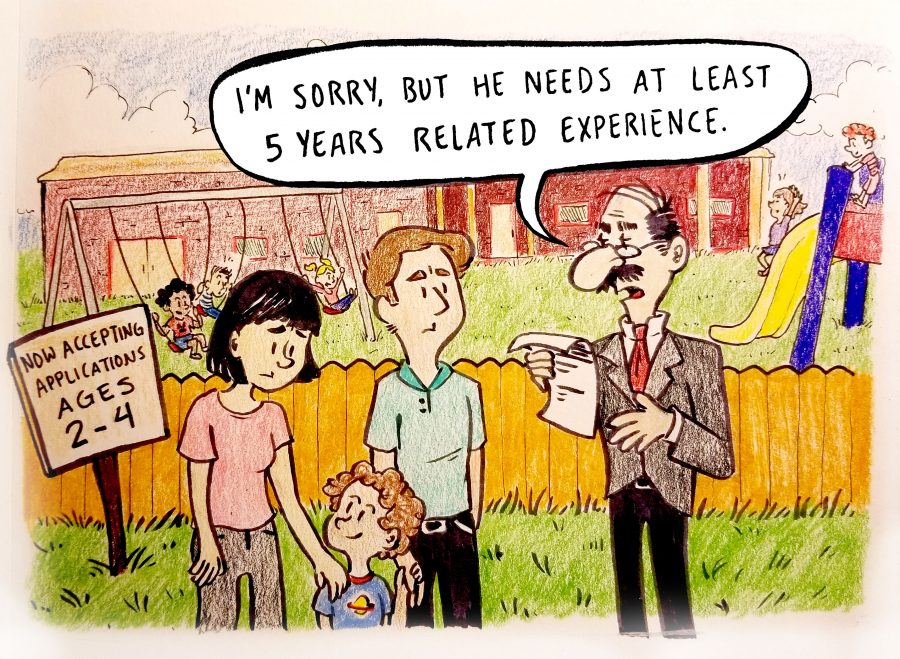When four years of classes, studying abroad, and internships come to a close, there is one thing left to do — find a job. An entry level job that builds skills in a student’s field of study and prepare them for employment at a higher level are the desired positions.
At the surface, these jobs ensure employers that the candidates they are hiring will be able to perform their assigned duties competently. In reality, these jobs have no interest in helping with building skills that inexperienced employees so desperately need.
University of Pennsylvania economics professor Matthew Bidwell found that 70 percent of people searching for entry level jobs were either unemployed or found themselves in a full-time non-professional job, such as waiting tables or working in retail sales. There was one overwhelming commonality for the reason behind this statistic — they all required experience.
Most entry level jobs seek employees who have a bachelor’s degree or higher and want to hire workers with two or more years of experience in the field they are applying to. While some college students manage part-time jobs and their schoolwork at the same time, many students just cannot find the time.
The average college student takes 12 credit hours in a semester, amounting to four courses. In a recent study, it was determined that students spend roughly 17 hours preparing for classes — homework, readings, preparations. This means that already, 29 hours of the week are spent dedicated to classwork. That number is not including weeks where a student has up to three exams or term papers.
With students in college going to class during the workday, it is unrealistic to expect them to gather experience while in school. Professional entry level jobs tend to not offer night shifts. Entry level employers need to understand this conflict and be willing to hire more inexperienced workers post graduation.
“I tried to be a receptionist at a clinic, so I could be around my future environment and I thought it was a pretty basic job,” Regan Burns, BS biology, microbiology and infectious diseases junior said. “They asked me to have one year of reception experience, so I applied to some salons, but they wanted experience also.”
Burns is currently unemployed, taking summer classes and unable to find a satisfactory job — one that fits with her school schedule and one that will help her to acquire experience. Unfortunately, Burns is not the only college-aged person experiencing this problem. An overwhelming 44 percent of college graduates in their 20s are stuck in non-professional jobs.
UT Austin startup Condecca is beginning to address part of the problem. The student built program has partnered with companies willing to outsource projects to students desiring experience. While this program provides a creative alternative to the lack of hired inexperienced students, the fact of the matter still remains that employers are not springing to offer full-time work to this demographic.
If students and graduates are not given the opportunity to gain experience, the employment rate for college-aged young adults will never rise. The struggling graduate sleeping on their parents’ couch and working as a server is much too cliche; the time is now to take advantage of the brilliant minds being educated and prepared all over the world to offer positive attributes to the workplace.
Mia Ciardi is a Journalism junior from Bernardsville, New Jersey. Follow her on Twitter @mia_ciardi.





















